LEWISTON — Coffee has roots in central Maine dating back to the late 1800s and is entrenched in Portland and the Midcoast region today. That’s changing — expanding beyond what might be called the “traditional market” to include more outlying areas.
Central Maine’s coffee history dates back before 1870 when James Solomon Sanborn established the J.S. Sanborn Co. in Lewiston, where he sold teas, coffee and spices. Born in Wales, Sanborn moved to Boston and connected with Caleb Chase, who owned a roasting business.
They founded Chase & Sanborn Coffee & Tea Co. in 1874 and became the first company in the country to package and ship ground coffee in sealed cans. People can still buy Chase & Sanborn Coffee, but more and more Mainers are turning to fresh roasted coffees.

Paddles churn coffee beans to cool Feb. 7 after they come out of the roaster at Side By Each Brewing Co. in Auburn. Russ Dillingham/Sun Journal
Coffee has become big business in the interim, generating more than $90 billion a year in revenue globally and more than $11 billion a year in the U.S., according to Statista. A study published in 2023 for the National Coffee Association, put the figure much higher at $343 billion, or 1.3% of the U.S. economy.
As coffee roasting has become more popular in Maine, roasters have been popping up in places beyond Portland and the midcoast, where the majority of roasters date back to the 1990s or early 2000s.
There’s no organization that keeps a tally, but the Sun Journal was able to verify there are at least 29 active commercial roasters in Maine. Ron Greenberg is credited with starting the first roaster in Maine — Benbow’s Coffee Roasters in Bar Harbor in 1985.
Side By Each Brewing Co. in Auburn started roasting coffee in 2022 and Damon Crouse, of The Root Cellar in Lewiston, and his wife just started Crouse House Coffee Roasters in Lewiston in the past few weeks.
Carrabassett Coffee Co. in Kingfield is a more established and mature business, now closing in on 30 years of operation and it’s a significant, year-round employer with 32 workers in a rural part of the state. It’s a bigger roaster, serving wholesale and retail customers through e-commerce and its distribution network across Maine and as far away as Alaska.
The business traces its roots to the mid-1990s, when two entrepreneurs — a chef and former marketing director at Sugarloaf ski resort — rented a garage and experimented with coffee roasting in a popcorn popper.
SIDE BY EACH BREWING AND ROASTING
Travis Spear is the head roaster and director of coffee at Side By Each Brewing. He is the nephew of Adam Spear, the co-founder of Coffee By Design in Portland, which started selling “gourmet coffee” on Congress Street in Portland in 1994, amid the vacant storefronts and adult video stores. The coffee roaster opened a few years later.
Travis Spear worked at the pioneering coffee roaster and coffee shops for 15 years. “I started because I needed a job,” Spear explained, “so I was just pushing a broom. … I worked production, I was a barista.”
Self-taught and very serious about coffee roasting, Spear approached Side By Each owner Ben Low in November 2021 about the possibility of adding a roasting element to the business. It made perfect sense for a brewery that’s open for breakfast seven days a week.
“The roastery-brewery model has been done elsewhere in the country — Two Brothers in Chicago,” Spear offered as an example. Others include Fifth Frame Brewing in Rochester, New York, Red Horn Coffee House and Brewing in Austin, Texas, and Modern Times in California.
There’s a lot of science behind roasting coffee — chemistry and physics thrown together in one pot, if you will. The 33-year-old likens it to a big physics equation. “It’s thermodynamics, right? Like, if you understand the principles of what’s going on and how to accommodate for weaknesses, you get good coffee out of anything,” Spear exclaimed, as he poked and sniffed the roasting coffee, constantly checking the temperature graphs on his laptop.
The roasting process moves very quickly — usually within 15 minutes, slightly longer for dark roasts. What starts out as green, or raw coffee beans, quickly changes as chemical reactions take place, and if you don’t keep a close eye on things, it probably won’t go well for you.
“The rate at which you apply heat directly impacts how a coffee ultimately tastes,” Spear said. “The biggest thing is buying quality raw product, quality green. But you can manipulate it whether it’s more caramel-heavy, chocolate-heavy, how acidic it is, the structure, the sweetness, how heavy the body is. All of that can be manipulated with how you roast.”
CROUSE HOUSE GRAND OPENING
Damon Crouse and his wife, Vicky, recently had a ribbon-cutting at their new roasting facility Crouse House Coffee at 25 Landry Road in Lewiston, right off Main Street. Coffee lovers at heart, Damon Crouse said they enjoyed tasting different coffees from different regions of the world.
His work at the faith-based, nonprofit The Root Cellar led him to create Common Grounds two years ago, a small, pay-what-you-can coffee shop in the basement of The Root Cellar at 89 Birch St. in Lewiston that offers the teens he works with work experience, and they earn a small stipend.
Soon, the Crouses were roasting coffee at home in a small roaster they found online. He started buying green beans at Maine Coast Roast in Biddeford. As he tells the story, he walked in one day to pick up his coffee beans and, “there’s this roaster that’s sitting in the corner, and they half jokingly asked if I wanted to buy it. And initially I said no,” Crouse said.

Crouse House co-owner Damon Crouse smells some coffee beans pulled out from the coffee roaster midroast during a Feb. 7 coffee demonstration at his new business in Lewiston. David Palazzolo watches at left. Andree Kehn/Sun Journal
Maine Coast Roast co-owner Holly Ayoob served as a mentor to the Crouses, not just selling them their Diedrich 5K roaster, but teaching him the basics of the roasting process.
It remains a part-time endeavor for now, with Vicky teaching and Damon Crouse working at the nonprofit. He’s knocking on doors and handing out samples, a familiar path for startup roasters.
Crouse House is open Saturdays for local pickup, or people may order online. They have no immediate plans for a cafe as they focus on getting the business going.
CARRABASSETT COFFEE CLOSING IN ON 30 YEARS IN BUSINESS
Bob Luce is the owner of Carrabassett Coffee. His family owned and operated a heating oil and propane business for several generations. He did not start out as a coffee aficionado, rather a successful businessman. Besides, Luce said the two businesses are not as different as one might think.
“Beans and propane — both commodities. So, I’m buying futures in both,” Luce said. “We get it in by transport loads, and we’ve got to store it. We’ve got to do some more manipulations with the beans than in the propane world. Beans we got to roast them, we’ve got to box them and then its packaging. Once it’s packaged then we got to ship it out, and then you wait 30, 60, 90 days to get paid. So, those two things are very similar.”
As is the case in small towns in Maine, everybody seems to know everybody and in business, that means many end up working with each other or collaborating in some way.

Carrabassett Coffee Co. owner Bob Luce enjoys a cup of freshly brewed coffee Feb. 15 at his business on Main Street in Kingfield. Russ Dillingham/Sun Journal
Luce has known the co-founder of Carrabassett Coffee — Tom Hildreth — his whole life. He helped Hildreth expand by constructing a new building in 2014 on Route 27 on property he owned, with one caveat when Hildreth was ready to sell the business.
“At that point in time (I) said we really don’t want a 5,000-square-foot facility,” Luce said, “that you sell it, and somebody moves it to Augusta and takes the jobs from Kingfield. So, we wanted a right of first refusal.”
That happened in 2017, so Luce and a business partner planned to run the budding coffee business together. Tragically, Luce’s partner and friend was killed in a plane crash on his way to a fishing trip in Honduras before they got working on their new business.
Fast-forward a few years and the COVID-19 pandemic hit. Sales plummeted 35%, not because people stopped drinking coffee, but because all the cafes and restaurants and bed and breakfasts they supplied shut down.
The silver lining was that mail-order sales tripled with everyone staying home and are still rising, Luce said. That means Carrabassett Coffee is running out of capacity and is ready to expand, with groundbreaking next month to add 2,500 square feet to the 5,000-square-foot facility, plus a new storage building.
Luce likens the growth of coffee roasters in Maine to the explosion of breweries in the state, except that breweries far outnumber the roasters at this point, with the Maine Brewers Guild reporting 165 active breweries in the state as of early 2022.
Breweries have a reputation of being collaborative; however, coffee roasters, to quote Travis Spear, are more “insular.”
Luce also sees the roasting sector as competitive, not collaborative.
“It would be nice to have the opportunity to talk with some others,” Luce said, “but you don’t really want to provide information to somebody else that’s going to be trying to eat your lunch later on.”
There is no tasting room or cafe at Carrabassett’s roasting facility; however, Luce and his wife own and operate two Java Joe’s cafes in Farmington and at Sugarloaf as part of the company.
GROWING THE COFFEE ROASTING SECTOR, WHILE BEING MINDFUL OF SUSTAINABILITY
Side By Each Brewing offers its roasted coffees in the restaurant and brewery, packaged to go and online for home delivery. That’s a sector Spear would like to grow incrementally, and he said he’s also working on the wholesale business as well.
He recently submitted seven of their coffees to a third-party review company — Coffee Review — for evaluation on a 100-point scale similar to wine ratings. The blind reviews are very good, with all rated 91 or better. To check those reviews go to: https://www.coffeereview.com/all-reviews/?roaster_name=Side+By+Each+Brewing+Co.
Spear said he is also working on sustainability plans to reduce waste and impact, something coffee roasters nationwide are focusing on.
Luce is also looking for sustainability answers at Carrabassett, especially with the volume of beans it roasts — currently 80 bags a week — with its next goal of 600,000 pounds a year. Each bag of green beans weighs between 130 and 150 pounds. They are discarding all those burlap bags, wooden pallets, cardboard boxes and the coffee chaff, all of which can be recycled or repurposed.

A newly completed storage building is filled with coffee and cardboard Feb. 15 at Carrabassett Coffee Co. on Main Street in Kingfield. Russ Dillingham/Sun Journal
But Luce is ahead of the game with power, having installed solar panels on the south-facing coffee roaster that generates 90% to 95% of the company’s total electricity needs, saving some $12,000 in annual costs and paying $35 a month for electricity.
Chaff is the innermost skin of the coffee fruit and comes off the beans as they are roasted. It contains nutrients such as magnesium and potassium so it can be used as compost, bedding for farm and domestic animals and can even be compressed into briquets and used as fuel.
Luce said he is open to all suggestions and will gladly give it away to anyone who can repurpose or recycle these materials.
Copy the Story LinkSend questions/comments to the editors.


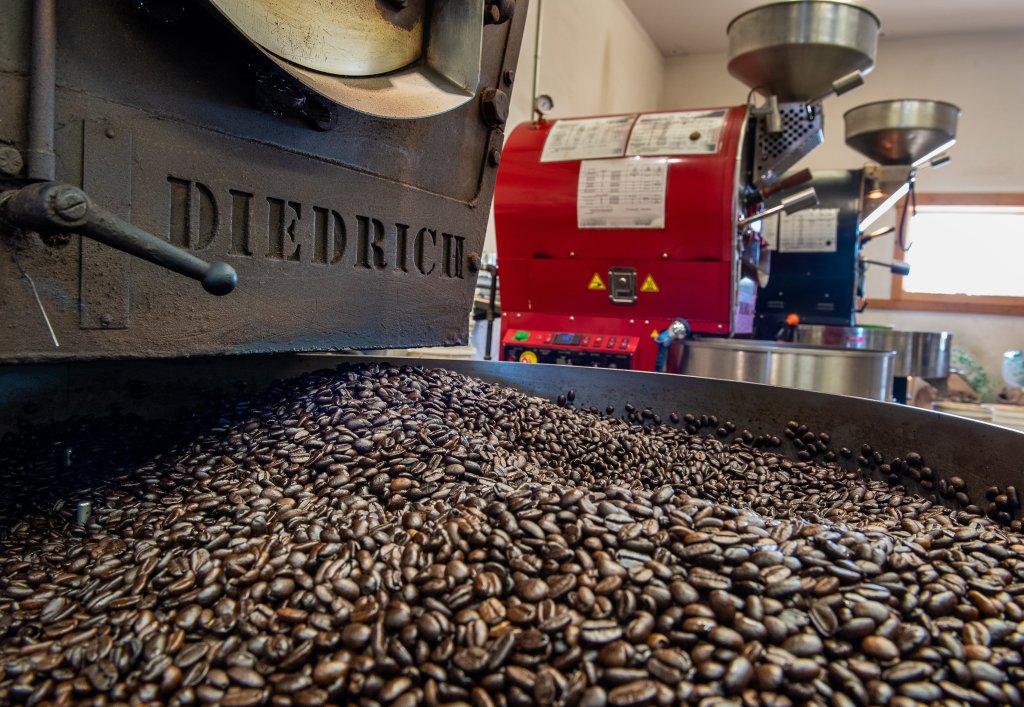
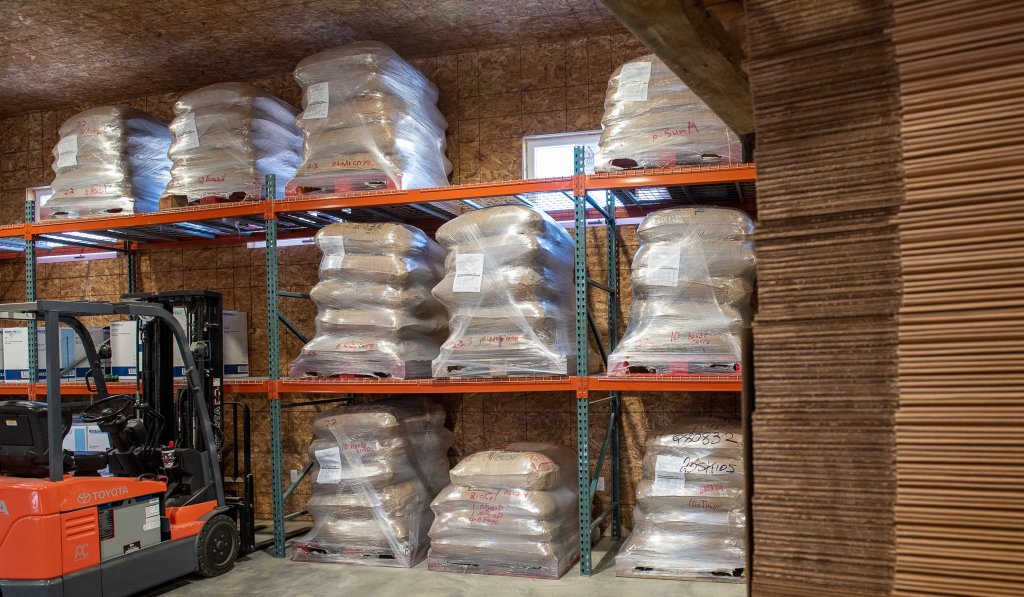
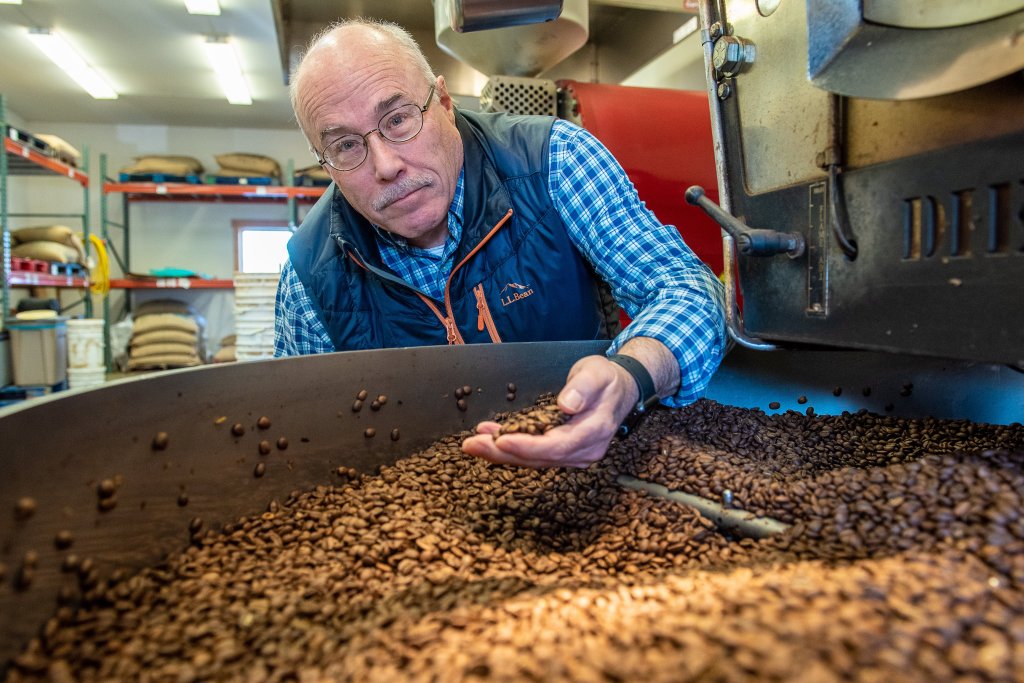
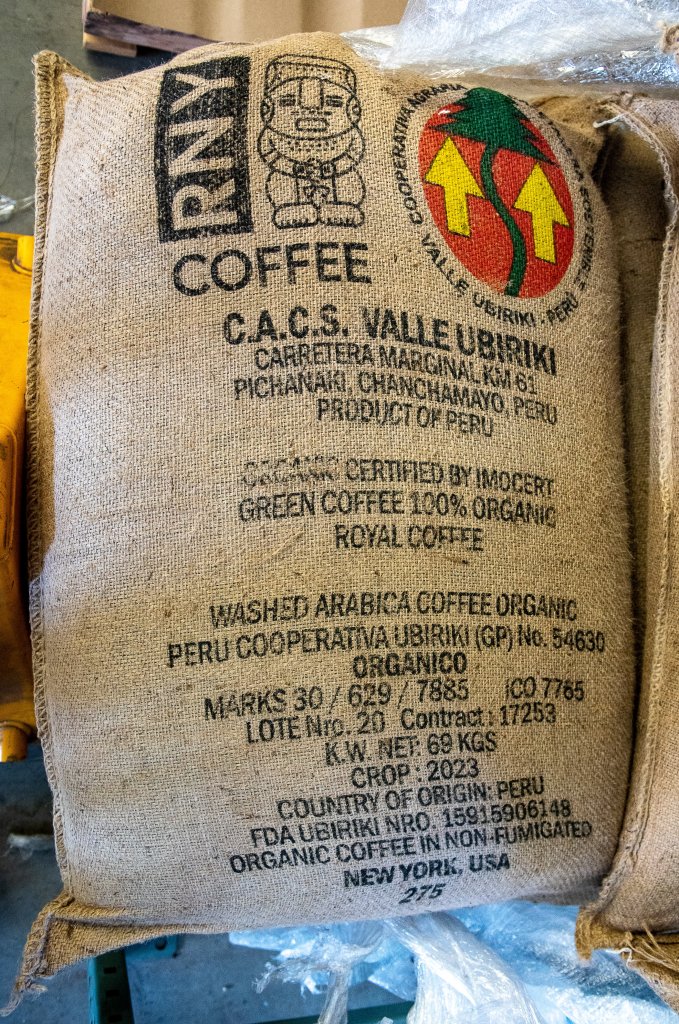
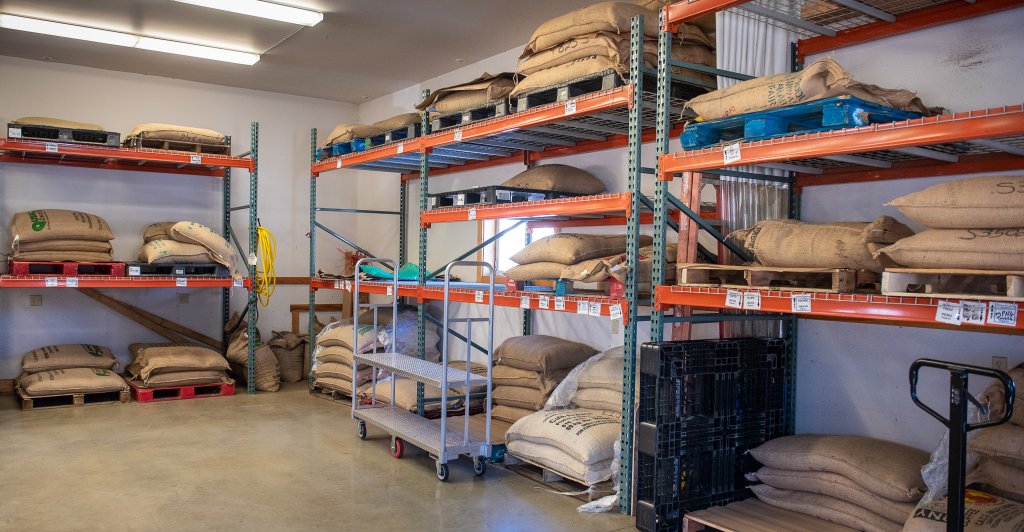
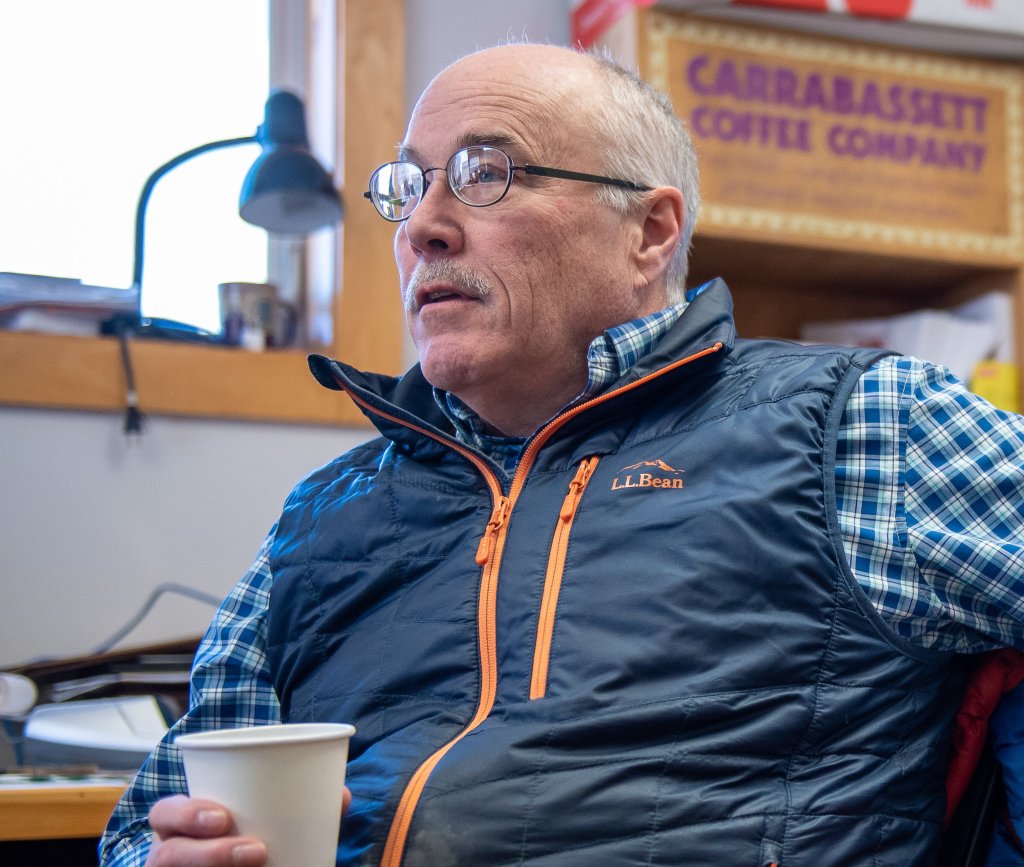
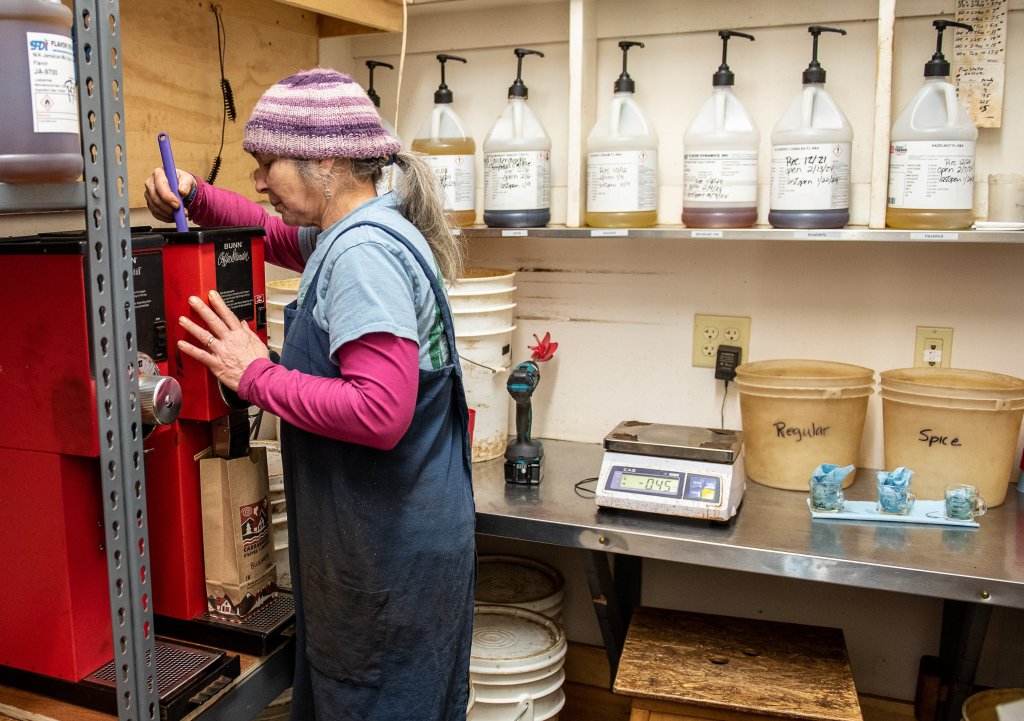
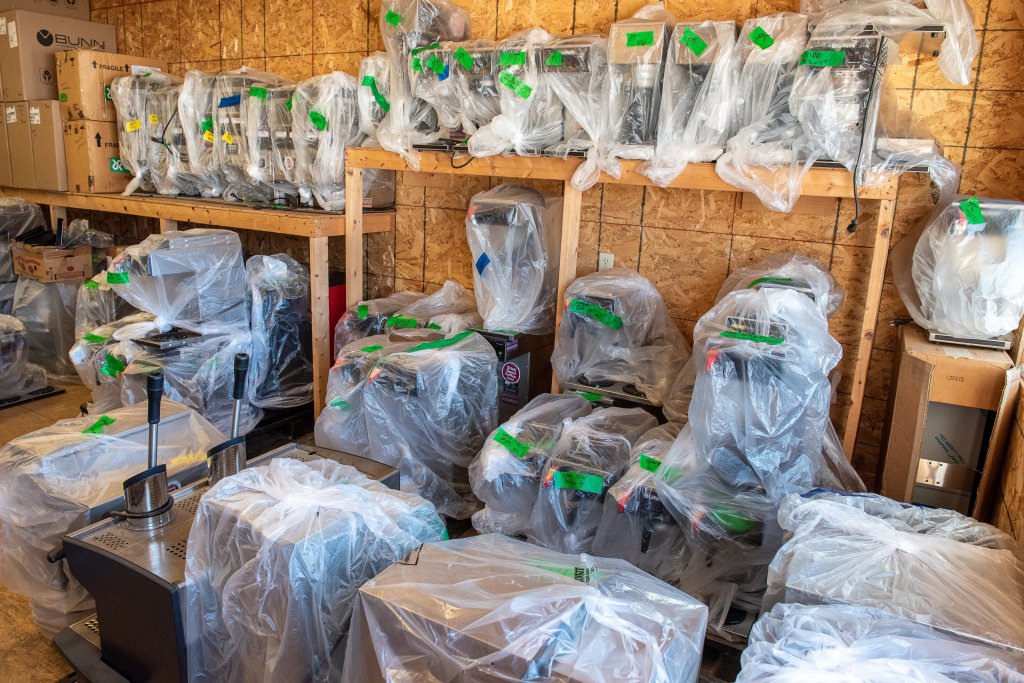
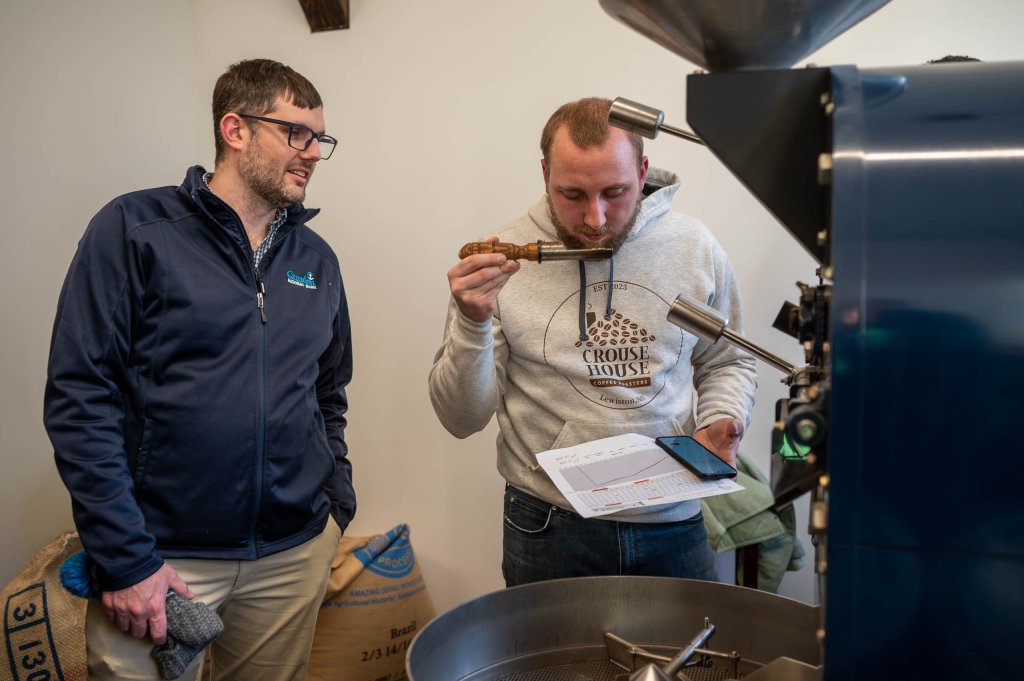
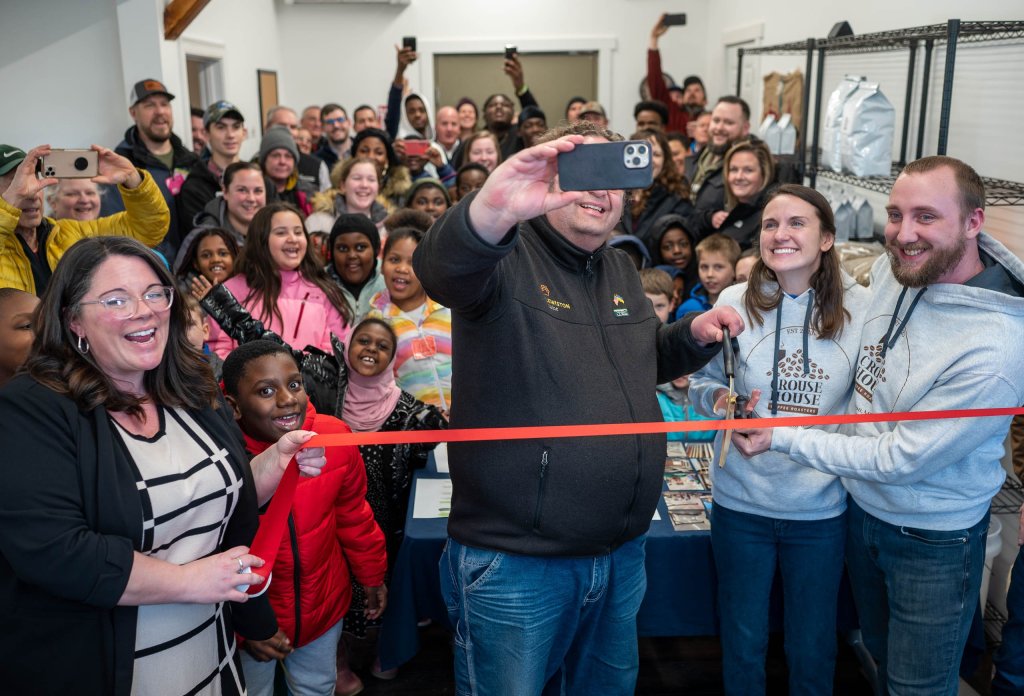
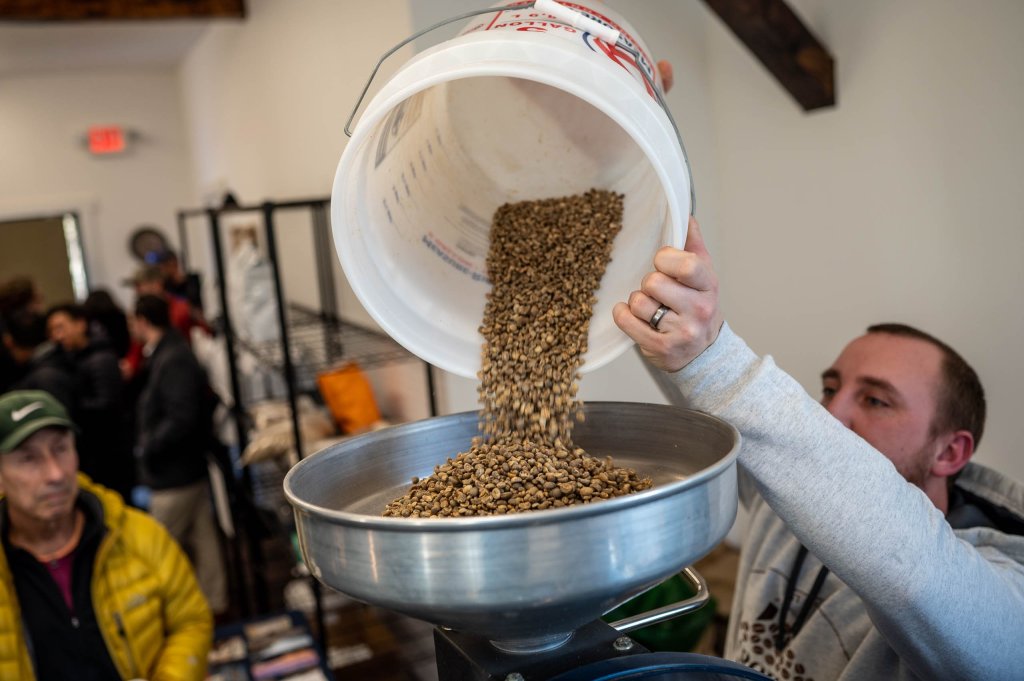
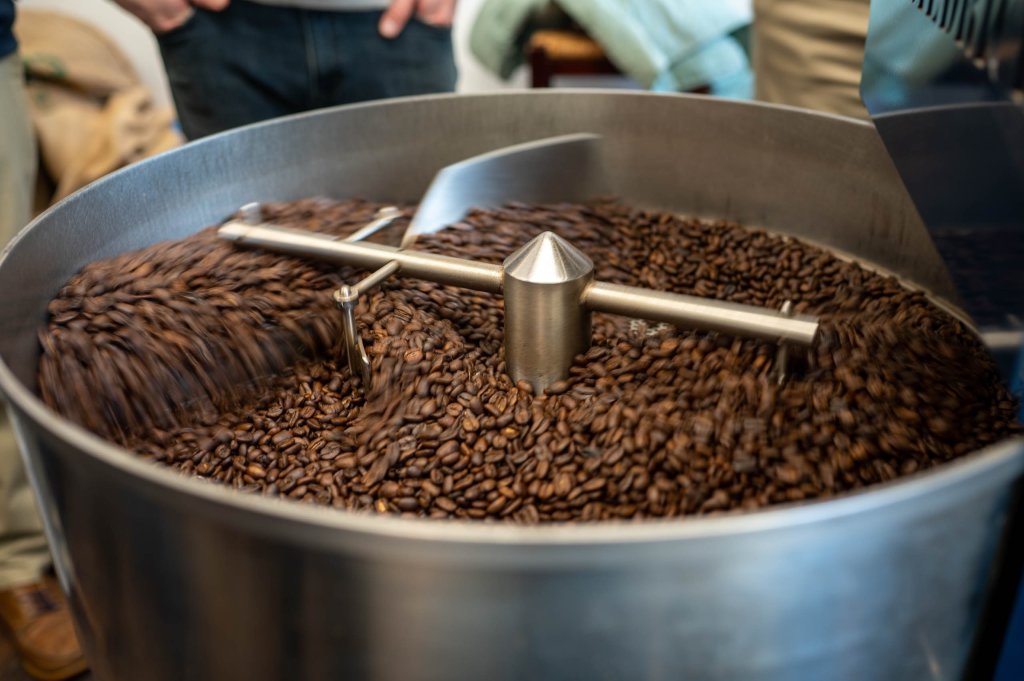
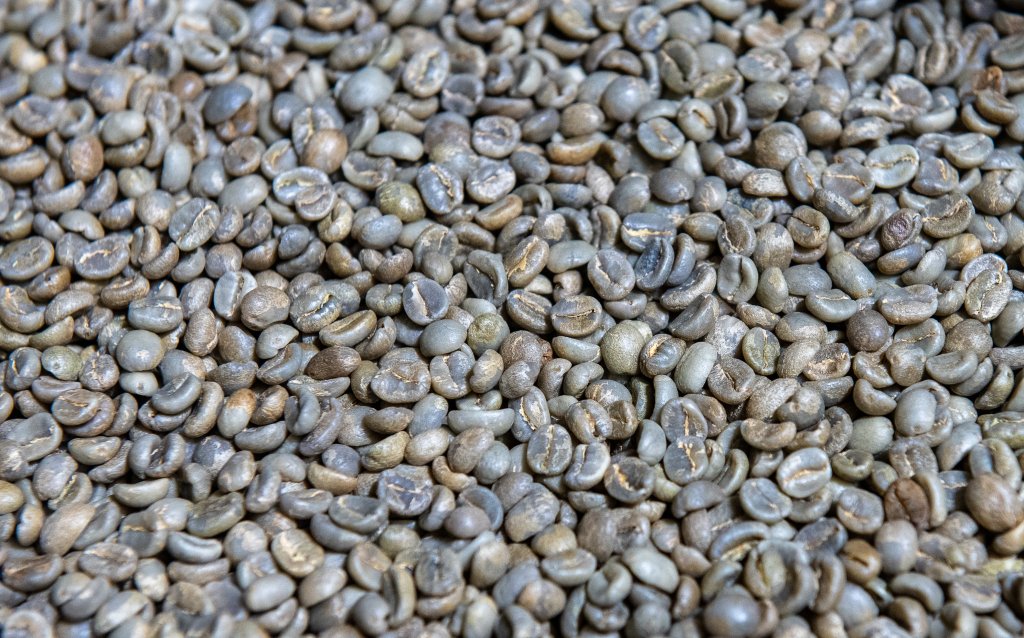
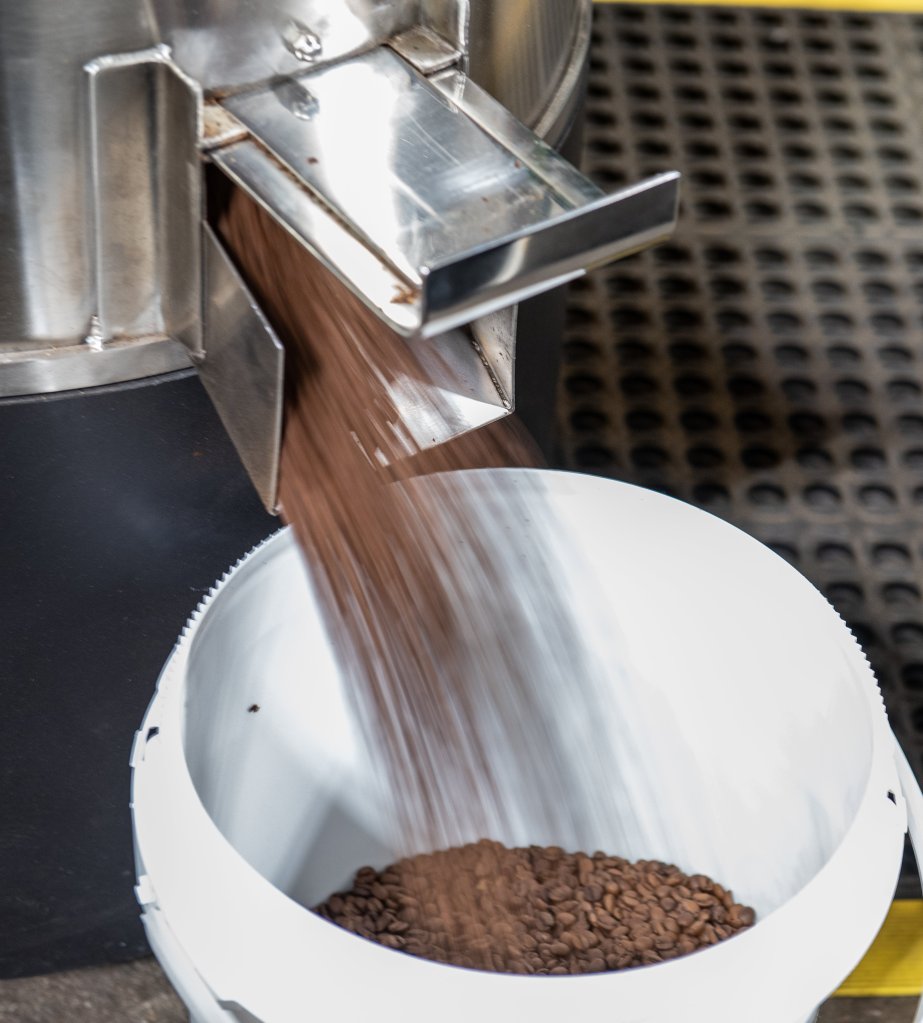
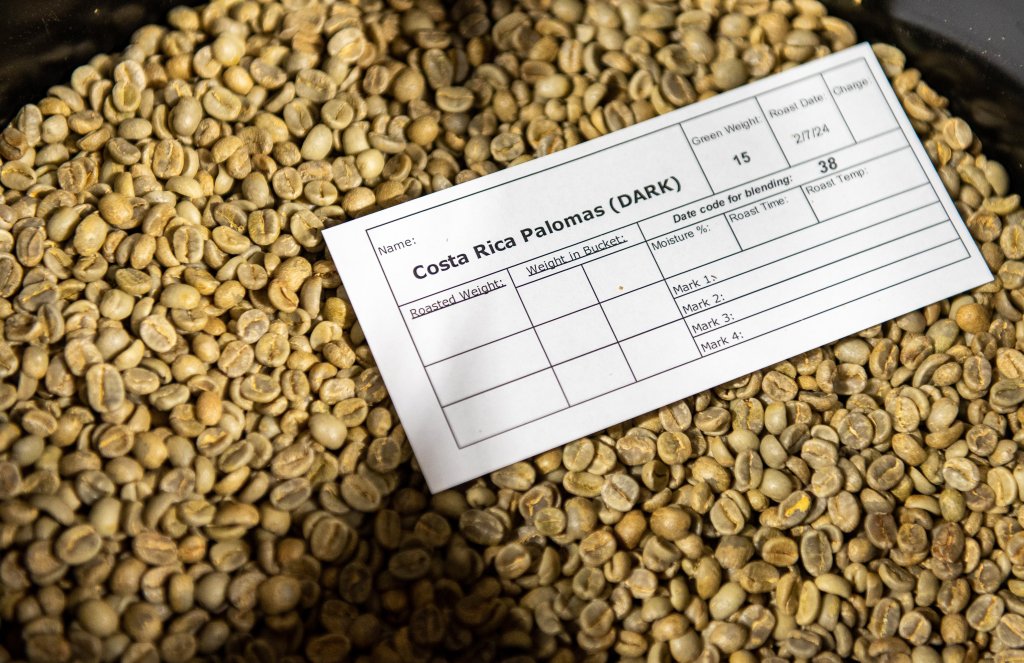
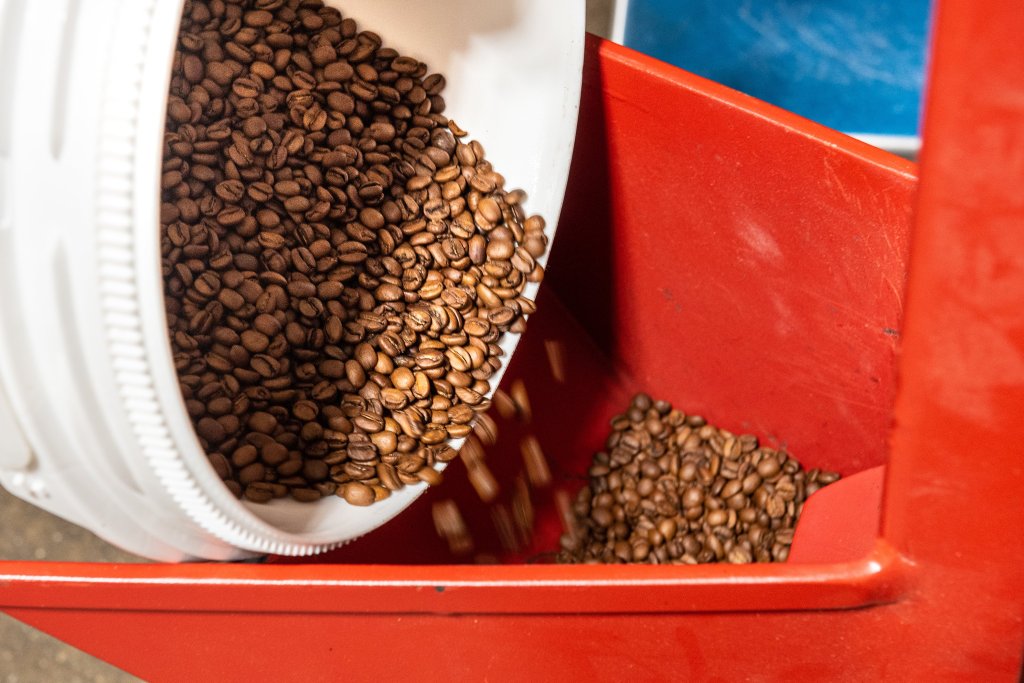
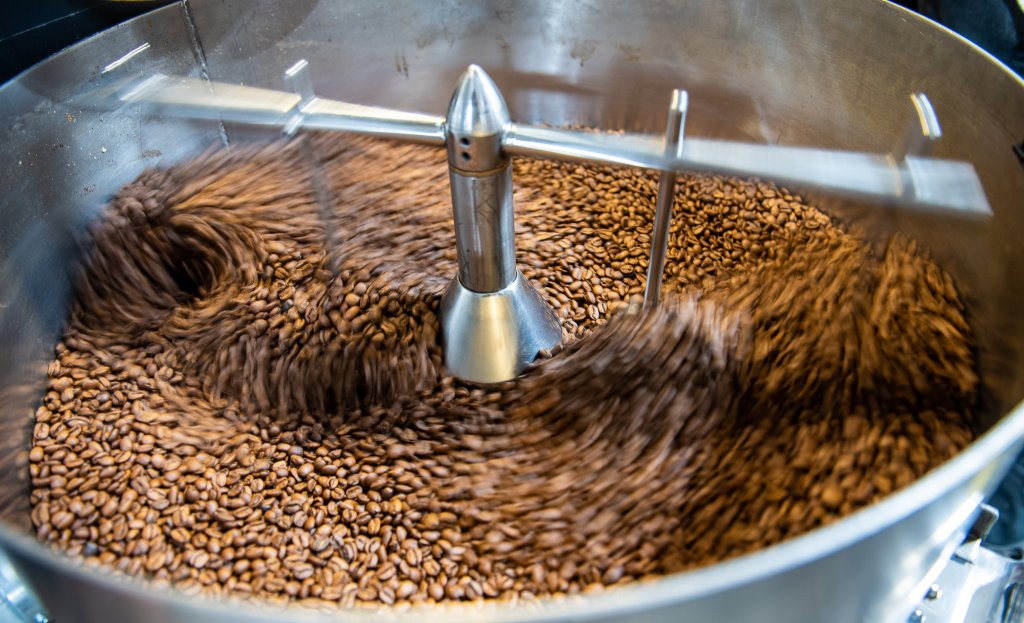
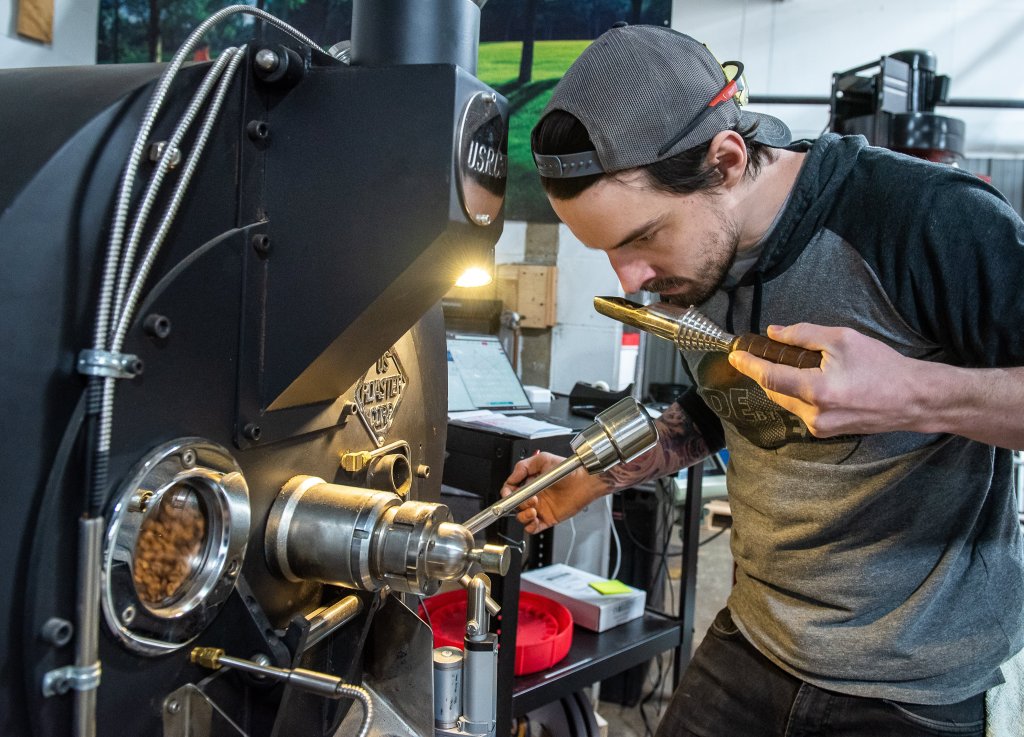
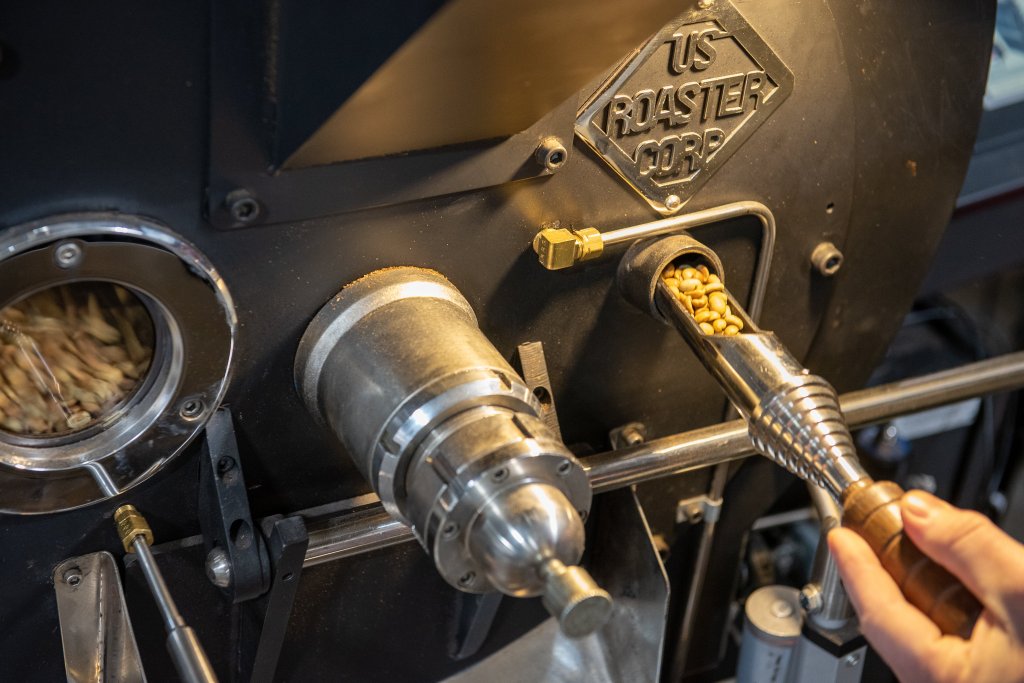

Success. Please wait for the page to reload. If the page does not reload within 5 seconds, please refresh the page.
Enter your email and password to access comments.
Hi, to comment on stories you must . This profile is in addition to your subscription and website login.
Already have a commenting profile? .
Invalid username/password.
Please check your email to confirm and complete your registration.
Only subscribers are eligible to post comments. Please subscribe or login first for digital access. Here’s why.
Use the form below to reset your password. When you've submitted your account email, we will send an email with a reset code.